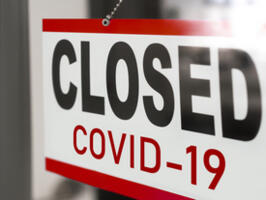Six Sneaky Ways States Are Raising Small-Business Taxes
A Commentary By Cliff Ennico
It's no secret that state and local governments are hard up for money. Even with the economy improving somewhat and tax revenues increasing, most American states right now are facing budget shortfalls.
State and local governments are desperate to find new ways to raise revenue without doing the obvious (and honest) thing, which is to raise people's taxes. Voting to raise taxes, especially during a recession, is a sure step to losing at the polls next November, and most politicians know that.
Here are six sneaky, stealthy ways that some state and local governments are raising taxes on small business in ways they hope won't generate lots of adverse press coverage.
1. Expanding sales taxes to services. It used to be that sales taxes applied only to the sale of "goods" -- physical, tangible stuff.
Not anymore.
Over the last 20 years, the fastest growth in small-business startups has been in the service sector, not "brick and mortar" retail or manufacturing. So state governments are now expanding their sales taxes to services. In Connecticut, for example, the state legislature recently voted to have the state sales tax apply to yoga classes, even though most education- and training-oriented businesses are exempt from tax.
Why yoga? Beats me. But I strongly suspect someone in the Connecticut legislature has been reading Laura Numeroff's classic children's book "If You Give a Mouse a Cookie." If you tax yoga, then why should spinning classes be exempt? Maybe all gym-related classes should be taxed. And, hey, what about health-oriented classes that take place outside of gyms? You get the idea.
2. Taxing online sales. State and local governments have lost billions of dollars in sales tax revenue to e-commerce and online business generally, and they are desperate to recoup some of that lost income. It doesn't help that local brick-and-mortar trade groups lobby their legislators to fight what they perceive as "unfair competition" from online merchants who aren't currently required to charge sales tax.
A growing number of states have adopted "Amazon bills" requiring out-of-state businesses to collect and pay sales tax (and sometimes income tax, too) on sales made to in-state residents if they either
-- target their marketing activities within the state (for example, by placing a banner ad on a website based within the state or launching an e-mail blitz primarily to residents of a single state) and/or...
-- sell a large volume of stuff to in-state residents (usually $10,000 to $20,000 in gross sales per year).
In response, Amazon, Overstock.com and other e-commerce platforms have refused to do business with "affiliates" located in some states that pass these laws.
3. Taxing other out-of-state businesses. If your business has a "physical presence" in another state, it will have to pay sales and income taxes in that state because it is said to have a "nexus" there. It used to be that physical presence meant having an actual brick-and-mortar location within the state, but not anymore. Many states are expanding their definition of physical presence so that even a temporary or ethereal presence in the state will be enough to trigger tax liability.
4. Enforcing use tax laws. In most states, you are required to pay a use tax whenever you buy something for your own consumption and don't pay sales tax on it (for example, when you buy from an out-of-state retailer). At least, you're supposed to.
Most people don't know about use taxes, and because of that ignorance, many states are auditing their use tax laws more vigorously in the hopes of frightening people into compliance.
5. Raising individual income tax rates. "Millionaire's taxes," or taxes on individuals or families who make $250,000 or more per year, are becoming popular in many states. The idea is that there aren't too many of these people around, so the likely damage at the polls next November can be limited.
What legislators forget is that most small businesses are organized as "pass-through" entities such as limited liability companies and subchapter S corporations. Tax increases on pass-through business owners go directly to their bottom line and force them to cut back on their standard of living. Anyone who thinks those tax increases won't be passed on to customers in the form of higher prices is kidding himself.
6. Imposing or increasing fees for government services. Many state and local governments have taken a cue from banks and airlines by charging for services that used to be free or raising fees on services that used to be relatively cheap.
The Connecticut secretary of state's office recently doubled the filing fees for corporation, LLC and other small-business filings. So an LLC filing, which used to cost $60, is now $120; a corporate filing that used to be $195 is now $385; and so forth, making incorporation prohibitively expensive for many small-business owners and discouraging business startups.
Cliff Ennico (crennico@gmail.com) is a syndicated columnist, author and former host of the PBS television series "Money Hunt." This column is no substitute for legal, tax or financial advice, which can be furnished only by a qualified professional licensed in your state.
COPYRIGHT 2011 CLIFFORD R. ENNICO.
DISTRIBUTED BY CREATORS.COM
Views expressed in this column are those of the author, not those of Rasmussen Reports. Comments about this content should be directed to the author or syndicate.
Rasmussen Reports is a media company specializing in the collection, publication and distribution of public opinion information.
We conduct public opinion polls on a variety of topics to inform our audience on events in the news and other topics of interest. To ensure editorial control and independence, we pay for the polls ourselves and generate revenue through the sale of subscriptions, sponsorships, and advertising. Nightly polling on politics, business and lifestyle topics provides the content to update the Rasmussen Reports web site many times each day. If it's in the news, it's in our polls. Additionally, the data drives a daily update newsletter and various media outlets across the country.
Some information, including the Rasmussen Reports daily Presidential Tracking Poll and commentaries are available for free to the general public. Subscriptions are available for $4.95 a month or 34.95 a year that provide subscribers with exclusive access to more than 20 stories per week on upcoming elections, consumer confidence, and issues that affect us all. For those who are really into the numbers, Platinum Members can review demographic crosstabs and a full history of our data.
To learn more about our methodology, click here.



